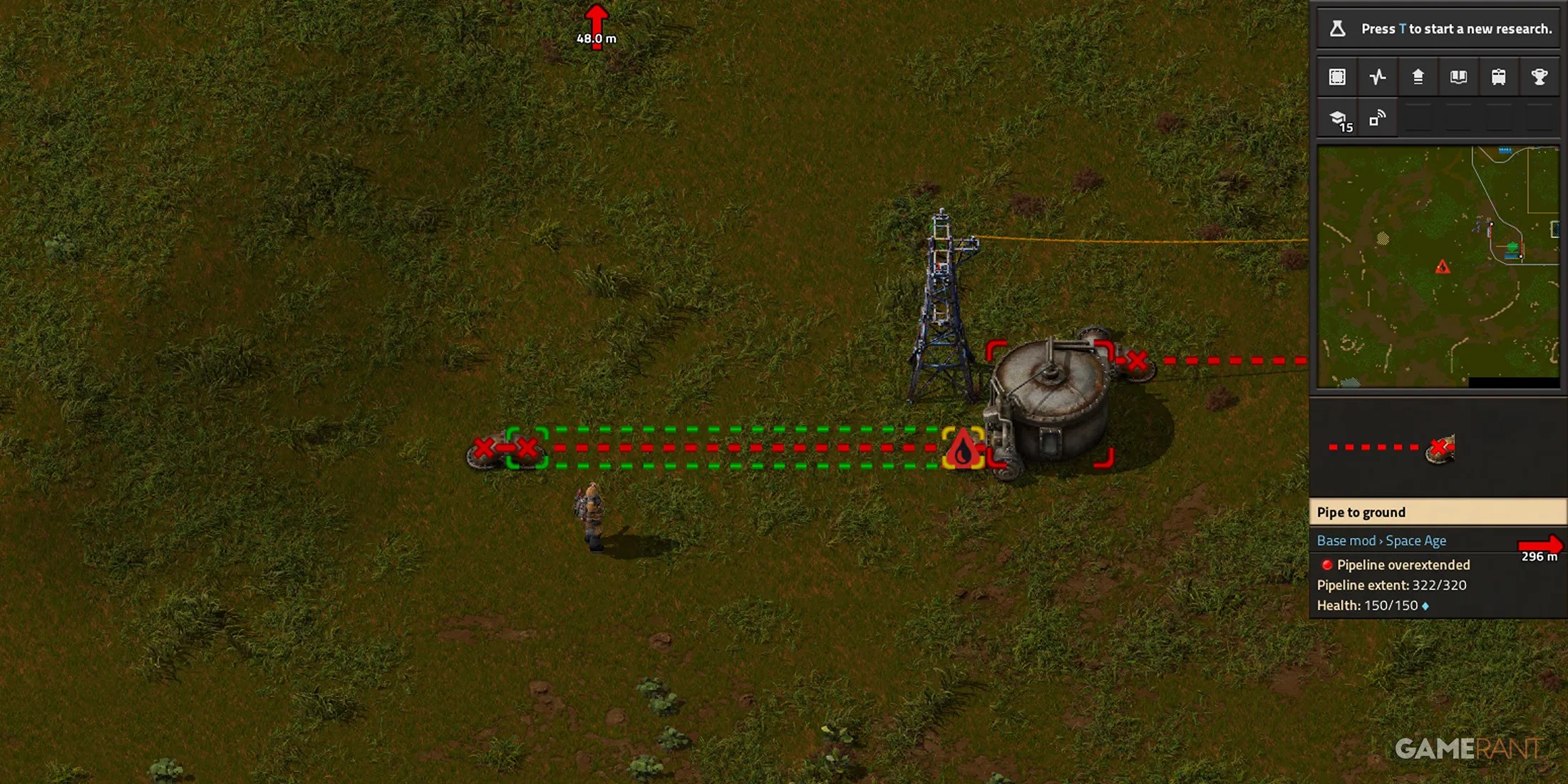In the fascinating world of Factorio, players often encounter the challenge of managing their resource pipelines efficiently. One of the most common issues that arise is when the "pipeline has been overextended," which can lead to bottlenecks and hinder progress in factory building. Understanding how to identify and resolve this issue can greatly improve your gameplay experience. Throughout this article, we will explore the causes of overextended pipelines, effective strategies to manage them, and tips for maintaining an efficient factory setup.
The concept of pipeline overextension is crucial for players aiming to optimize their factories. When a pipeline is overextended, it means that the transportation system designed to move resources from one point to another is not functioning efficiently, often due to excessive length or inadequate throughput. This can lead to resource shortages and production delays, particularly in advanced stages of the game where demand for materials increases significantly.
In this article, we will delve deeper into the mechanics of pipelines in Factorio, discuss the various factors that contribute to overextension, and provide actionable solutions to mitigate this issue. Whether you are a new player or a seasoned veteran, understanding these mechanics will enhance your strategic planning and improve your overall gameplay.
Table of Contents
- Understanding Pipelines in Factorio
- Causes of Pipeline Overextension
- Identifying Overextended Pipelines
- Strategies to Manage Pipelines Effectively
- Optimizing Pipeline Layouts
- Upgrading Your Pipeline Systems
- Case Studies of Successful Pipeline Management
- Conclusion
Understanding Pipelines in Factorio
Pipelines are essential components in Factorio that allow players to transport fluids from one location to another. These systems can be used for various resources, including oil, water, and other liquids. Understanding how pipelines function is vital for preventing overextension.
The Mechanics of Pipelines
Pipelines operate on a simple principle: they move fluids from a source to a destination. However, factors such as the length of the pipeline, the number of connections, and the flow rate can significantly impact their efficiency. Key mechanics include:
- Flow Rate: The maximum speed at which fluids can travel through a pipeline.
- Pressure: The force that pushes fluids through the system; longer pipelines can reduce pressure, leading to slower flow.
- Connections: The number of junctions and intersections in a pipeline can create bottlenecks if not managed properly.
Causes of Pipeline Overextension
Understanding the causes of pipeline overextension is crucial for effective management. Here are some primary factors that lead to this issue:
- Excessive Length: Long pipelines can lead to significant pressure drops and slow fluid movement.
- Inadequate Infrastructure: Insufficient pumps or tanks to support the flow can exacerbate the problem.
- Complex Layouts: Complicated pipeline designs with many intersections can create bottlenecks.
- High Demand: Increased production needs can overwhelm existing pipelines, leading to shortages.
Identifying Overextended Pipelines
Recognizing an overextended pipeline is the first step toward resolving the issue. Signs of overextension include:
- Slow fluid movement observed in pipes.
- Production systems that are not receiving adequate resources.
- Frequent alerts about resource shortages.
Utilizing tools such as the "fluid flow" overlay can help players visualize their pipeline systems and identify problem areas.
Strategies to Manage Pipelines Effectively
Implementing effective strategies can help players maintain their pipeline systems and prevent overextension:
- Shorten Pipeline Length: Reduce the distance between resource sources and production facilities.
- Use Pumps Wisely: Strategically place pumps to boost pressure and flow rates where needed.
- Upgrade Pipeline Materials: Transition to more advanced pipeline technologies that can handle higher flow rates.
Optimizing Pipeline Layouts
A well-organized pipeline layout is essential for ensuring smooth resource flow. Here are some tips for optimizing your layouts:
- Minimize turns and junctions to reduce pressure loss.
- Utilize underground pipes to streamline your design and save space.
- Designate specific lines for high-demand resources to prevent cross-contamination.
Upgrading Your Pipeline Systems
As your factory expands, upgrading your pipeline systems becomes necessary. Consider the following upgrades:
- Switch to high-capacity pipes that allow for greater fluid throughput.
- Implement advanced fluid management systems that can automatically adjust flow rates based on demand.
- Incorporate storage tanks strategically to buffer resources during peak demand times.
Case Studies of Successful Pipeline Management
Learning from real-world examples can provide valuable insights into effective pipeline management. Here are two case studies:
- Case Study 1: A player redesigned their pipeline layout by eliminating unnecessary junctions, resulting in a 50% increase in fluid flow.
- Case Study 2: Another player upgraded to high-capacity pipes and strategically placed pumps, allowing for rapid resource replenishment during peak production times.
Conclusion
In conclusion, managing pipelines effectively is crucial for success in Factorio. By understanding the mechanics of pipelines, recognizing the causes of overextension, and implementing strategic solutions, players can enhance their factory operations and prevent resource bottlenecks. We encourage you to share your experiences and strategies in the comments below, and don’t forget to explore our other articles for more tips on mastering Factorio!
Call to Action
If you found this article helpful, please consider sharing it with fellow players and leaving us a comment with your thoughts or experiences regarding pipeline management in Factorio.
Thank you for reading, and we look forward to seeing you back on our site for more insightful content!
Article Recommendations


